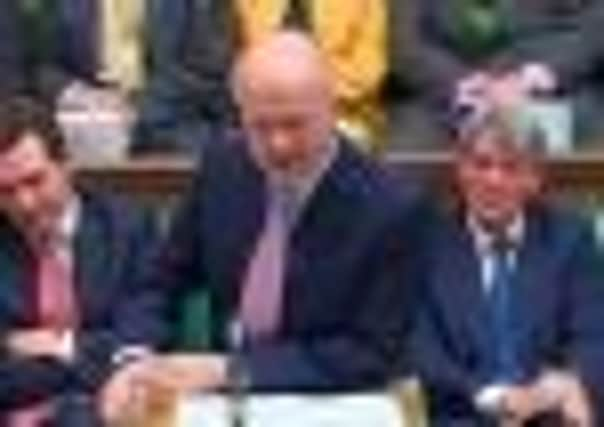Duncan Hamilton: UN must heed the warnings as member states drift away


But every small, unilateral, national gesture simply magnifies the massive international failure to avert a conflict which has killed 20,000 people and displaced 150,000. The details of the £5m spending make the point – it is to be used for ‘non-lethal’ means only. That means things like mobile phones and satellite equipment to give early warning of impending attacks by the Assad regime, and body armour.
Am I alone in thinking that sends an odd message to the rebels? It says, ‘We support you, we’ll tell you when the enemy is coming, here’s some armour, good luck.’ Is that as far as we are going to go?
Advertisement
Hide AdAdvertisement
Hide AdPost Iraq and Afghanistan, direct military intervention is very difficult. But when people like former foreign secretary Malcolm Rifkind are openly advocating military support to the insurgents, it’s time to pause. Why give a besieged population body armour and communication to survive, but not go the extra mile and give some means of fighting back? Who are we kidding anyway – the dogs in the street know that the Syrian rebels are already being given military aid and assistance by Saudi Arabia and Qatar, with Turkey and the US helping behind the scenes. William Hague knows that too, and clearly sees no reason to condemn it. So, if turning a blind eye is OK, why is arming the rebels beyond the pale?
The traditional reason is to avoid diplomatic rupture. But that ship sailed long ago; the rupture on this issue is already complete. The Russians and Chinese have vetoed Security Council resolutions on three separate occasions. The Security Council will try again on 16 August but nothing fundamental in the Russian or Chinese position will budge. Do we simply accept that?
Which brings into focus the longer lasting damage of this conflict – the neutering of the UN. The concept, aspiration and motivation of the UN and its many agencies cannot be doubted. It does good and vital work for millions of people around the globe. But for all that, the UN has been brutally exposed as being not just impotent, but increasingly irrelevant, on the big decisions.
That’s not entirely new – the constant tension between national interest and international co-operation is the key dynamic of international diplomacy.
But this is something more corrosive; a sense that the UN increasingly doesn’t matter. It is as if the crowd is dispersing, moving off into pockets of smaller groupings to discuss matters only with other like-minded nations. In that trend lies the greatest danger – a drift away from the UN as a relevant or powerful forum.
When someone like Kofi Annan resigns from his role as envoy, you realise that every tool in the box has been tried without success. His description of “mission impossible” in Syria was partly about two sides on the ground who refused to stop fighting, but it was also surely a warning to the Security Council?
As a definition of an institution in crisis, look no further than the condemnation of the Security Council by the General Assembly over Syria. The General Assembly passed such a motion by 133 votes to 12, but only after the original text of the motion deleted explicit calls for Assad to resign and also for member states to support the Arab League sanctions. Does that sound to you like a powerful international forum for dispute resolution?
What we have seen, therefore, is a move towards ‘satellite’ discussions on the way forward. Hillary Clinton is in Turkey for talks on a united way forward. This week, Iran – yes Iran – hosted a 29-nation conference on the conflict attended by China and Russia. No western nations attended, in fact those accused of arming the rebels were explicitly excluded. Iran, hypocritically, simply ignored its own violent role in the suppression of dissent within Syria.
Advertisement
Hide AdAdvertisement
Hide AdThe Iranian conclusion? Simple really –the rebels should assist President Assad in implementing political reforms. So Assad commits humanitarian atrocities and in return his people bend to his rule? Good luck selling that message in Tremseh or Aleppo.
But given the attendance of countries like India, the point remains – these sporadic and deliberately exclusive conferences are being used to corrode the primacy of the UN as a forum for resolution.
What we have, therefore, are at least two divergent strategies being pursued – one by Assad, Iran, Russia and China, and another by the western powers, the Arab League, the EU and others. The dangers inherent in that global rift escalating are obvious. Less clear is what, if anything, Secretary General Ban Ki Moon can do about it.
JFK wanted the UN to be the “last best hope” for global peace. Sadly, it may not now even be the best hope for Syria. «